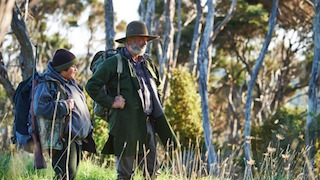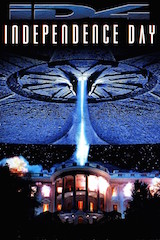David Atwell takes the reins for the third of seven film and theology classes. This month, he takes us to the top of a hill in Athens. Come with us!
The Handout, as promised:
Gospel and Film Class: Acts 17, the Monomyth, and What God Wrote on our Hearts
“The Story” – Colossians 1:15-23, ESV
He is the image of the invisible God, the firstborn of all creation. For by him all things were created, in heaven and on earth, visible and invisible, whether thrones or dominions or rulers or authorities—all things were created through him and for him. And he is before all things, and in him all things hold together. And he is the head of the body, the church. He is the beginning, the firstborn from the dead, that in everything he might be preeminent. For in him all the fullness of God was pleased to dwell, and through him to reconcile to himself all things, whether on earth or in heaven, making peace by the blood of his cross.
And you, who once were alienated and hostile in mind, doing evil deeds, he has now reconciled in his body of flesh by his death, in order to present you holy and blameless and above reproach before him, if indeed you continue in the faith, stable and steadfast, not shifting from the hope of the gospel that you heard, which has been proclaimed in all creation under heaven, and of which I, Paul, became a minister.Acts 17:16-34, ESV
Now while Paul was waiting for them at Athens, his spirit was provoked within him as he saw that the city was full of idols. So he reasoned in the synagogue with the Jews and the devout persons, and in the marketplace every day with those who happened to be there. Some of the Epicurean and Stoic philosophers also conversed with him. And some said, “What does this babbler wish to say?” Others said, “He seems to be a preacher of foreign divinities”—because he was preaching Jesus and the resurrection. And they took him and brought him to the Areopagus, saying, “May we know what this new teaching is that you are presenting? For you bring some strange things to our ears. We wish to know therefore what these things mean.” Now all the Athenians and the foreigners who lived there would spend their time in nothing except telling or hearing something new.
So Paul, standing in the midst of the Areopagus, said: “Men of Athens, I perceive that in every way you are very religious. For as I passed along and observed the objects of your worship, I found also an altar with this inscription, ‘To the unknown god.’ What therefore you worship as unknown, this I proclaim to you. The God who made the world and everything in it, being Lord of heaven and earth, does not live in temples made by man, nor is he served by human hands, as though he needed anything, since he himself gives to all mankind life and breath and everything. And he made from one man every nation of mankind to live on all the face of the earth, having determined allotted periods and the boundaries of their dwelling place, that they should seek God, and perhaps feel their way toward him and find him. Yet he is actually not far from each one of us, for
“‘In him we live and move and have our being’;
as even some of your own poets have said,
“‘For we are indeed his offspring.’
Being then God’s offspring, we ought not to think that the divine being is like gold or silver or stone, an image formed by the art and imagination of man. The times of ignorance God overlooked, but now he commands all people everywhere to repent, because he has fixed a day on which he will judge the world in righteousness by a man whom he has appointed; and of this he has given assurance to all by raising him from the dead.”
Now when they heard of the resurrection of the dead, some mocked. But others said, “We will hear you again about this.” So Paul went out from their midst. But some men joined him and believed, among whom also were Dionysius the Areopagite and a woman named Damaris and others with them.
Some questions to ask when you see a film:
- What do I like or dislike about this film?
- What universal desires and dreads does this film address?
- What interesting questions does this film raise?
- How is this story (and its characters) like The Story of Colossians 1?
Things to remember while you do this:
- There is no perfect analogy.
- Don’t make up things that aren’t there.
Online resources for further study:
- RedeemingCulture.com – This site! Current events, general culture, film, etc.
- ReelWorldTheology.com – Specific focus on film & TV.
- Cinemagogue.com – Even more specific focus on film.
- Reminder from last class – BBFC.co.uk and IMDb.com – Better film classifications; know what’s coming, be aware to prepare yourself!
Want to see the full class (including clips) in video form? Click here.
If you want to search for more meaning beyond the clips shown in this class, you can check out Star Wars, Casablanca, or The Lion King on Amazon.
Want to subscribe?
- RSS Podcast Feed (with your podcast program of choice)
- iTunes Podcast Feed (with your iOS or Mac device)
- Google Play Podcasts (from your Android device or web browser)
Social:
Facebook.com/RedeemingCulture
Twitter: @RedeemCulture and @podcast3D
Reddit: /r/RedeemingCulture
RedeemingCulture.com/podcast
Credits:
The 3D Podcast is ©2016 Redeeming Culture. This class was recorded at Redeemer Presbyterian Church in Indianapolis, IN during the summer of 2016.
The theme song is adapted from “Hero” by Doctor Vox, and is released under a CC-BY Creative Commons license. See here for more information: youtu.be/qNuC01Z3lrs
Audio clips from Star Wars: Episode IV – A New Hope are © 1977 Lucasfilm. Clips from Casablanca are © 1942 Warner Bros. Clips from The Lion King are © 1994 Walt Disney Pictures. All clips are used here for review and critique purposes only.
• • •
Thanks for reading listening to Redeeming Culture! We appreciate your presence- and, of course, if you’d like to help out, click here.


